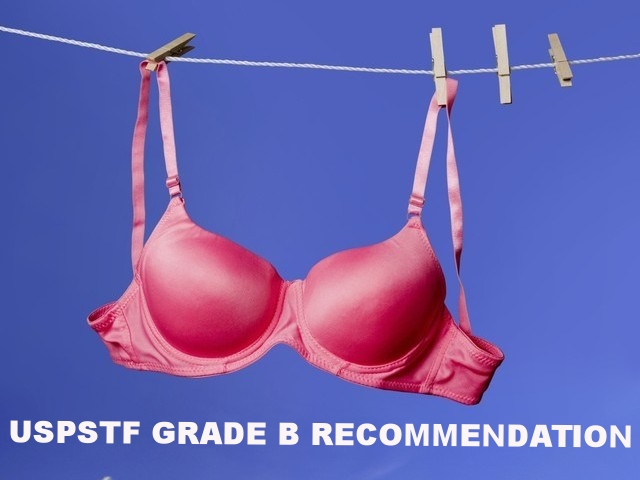Top 5: POEM's To Win Over Any Patient
/I'm still alive.
Yeah, you. That single person who reads this blog with any morsel of consistency.
I'm still alive, thanks Mom.
I have found myself giving talks more than blogging them so I apologize for the lack of content in the past 3 months. Well, absolutely no content for the past 3 months. For some reason, my talks given on outpatient COPD and hypertriglyceridemia induced pancreatitis don't translate well to blog form. But I'm back to give you my q3month blog. And it's inspiring.
Well, inspiring for myself.
I just got back from the AAFPNC in Kansas City where I was using all of my dirty college football coach tricks to recruit spectacular medical students to the Pacific Northwest. (Only a small amount of endorsement money was passed, I promise!) While at the conference, I was able to go to a few talks this year. Most of them were pretty mundane to be honest but there was one that I really loved. Dr. Steven Brown was the main speaker and he basically discussed the top POEMs (patient oriented evidence that matters) of the past year. He did it in a way that fluidly showcased not only his knowledge of the actual POEMs and studies but insight into methodology, medicine, and practicality. So with that inspiration, I give you the second installation of the "Top 5" series. Top 5 POEMs in the past year... or so.
1. Augmentin has no effect in Acute Bronchitis, except to give you diarrhea AND normal coughs last for 18 days.
I haven't got passed the first POEM and I already cheated by combining two in one. I really like this one because it's something we could probably use nearly every day in the clinic. Who hasn't had a patient coming in with a cough that "now has been 8 days!" In early 2013, there was a study [1] that took nearly 500 patients in Georgia and randomly called them to ask about their expected duration of a cough. They then compared this to observational and RCT studies found in the literature and found that the average published duration was 17.8 days while the patient median expected duration from the patient survey was 5-7 days. It's not revolutionary by any means but it's some nice data to back up your patient education visits.
"But what about the antibiotics?!"
Another difficult area of patient education as I'm sure many of you are all too familiar with. But now with even more data to help you explain why antibiotics are not a panacea. In October of last year, there was a RCT [2] with roughly 400 patients with a respiratory tract infection less than 1 week duration who were randomized to either ibuprofen (600mg TID), Augmentin (500/125mg TID) or placebo for 10 days. They had the patients use a diary card to record the duration of cough. Study found no significant difference in length of cough between ibuprofen (9 days) and Augmentin (11 days) or placebo (11 days). On top of that, 1 out of every 8 patients had a negative side effect from Augmentin, typically gastrointestinal related.
2. JNC8 was a big deal: Older folks finally get more leeway, initial treatment is a free for all, and diabetics get cut some slack.
Family medicine physician are a different breed. We don't get too excited about new medical devices or the latest medication on the market that costs twice your mortgage. What we DO get excited about is stuff like JNC8. It's the crack cocaine of my people. JNC 8 did not disappoint either, it gave a nice, clean high. First off, they finally said we could loosen the blood pressure reigns on our older patients. Now the goal for those greater than 60 years old is 150/90 instead of 140/90 previously. We were already doing this before but now we can point to JNC8 and get some much needed back up.
Favorite gif of this year
They also gave providers more options to start with when starting an antihypertensive. Now the recommended first line in nonblack populations is thiazide, calcium channel blocker (CCB), angiotensin-converting enzyme (ACE) inhibitor or angiotensin receptor blocker (ARB). That's pretty much everything except beta-blockers. In black populations, they recommend thiazides or CCB. They also said not to use ACEI and ARBs together, likely stemming from studies in the past year showing either no benefit in mortality [4] or mixed results [5, 6]with regards to nephropathy progression.
Finally diabetics can join the rest of us at 140/90 instead of needing stricter blood pressure goals. Hurrah!
3. New anticoagulants basically the same as warfarin in atrial fibrillation.
The new anticoagulants remind me of the new kid who'd come to your school in the middle of the year. They'd have some spunky name, in this case something like dabigatran. But you know my friends call me Pradaxa. They'd be dressed different. They'd act different. You wouldn't know what to make of them. Would they become the new "cool kid"? or someone who would be sitting alone at lunch? Well the answer is "we still don't know".
A meta-analysis [7] was released this past year that pitted the new anticoagulants versus warfarin. The authors searched RCTs and pooled roughly 72,000 patients who had atrial fibrillation and received either a newer anticoagulant or warfarin. The study ended up finding that there was a small but significant improvement in all strokes (3.1% vs 3.8%, RR=0.81, NNT=148) but not difference in rates of MI or ischemic strokes. The newer agents also had a small but significantly higher rate of GI bleeds (2.6% vs 2%, NNT=129). Overall, the numbers aren't astounding and there were several concerns about the authors being affiliated with the companies and obscure methodology. So I took from this that I will treat the two classes of medication the same and will use cost and ease of use as my main branching points.
4. Aspirin - disappointing you as I get older.
Created over 100 years ago, aspirin was the King Kong of medicine at one point. It was the pharmacological "apple a day" and was used for anything from colon cancer to being laced in gum for children after tonsillectomy (who knew they would end up bleeding more). However, as years go on aspirin has been found to be less and less effective and the very real side effect of GI bleeds has become more prominent.
I cheated for the second time now and took a POEM from 2012. It was too good to pass up on. There was a meta-analysis [8] 2 years ago that looked at over 100,000 patients without clinically apparent cardiovascular disease. Doses of aspirin ranged from 100-500mg qday and found that the composite outcome was 3.86% in aspirin arm and 4.16% in the placebo arm. In layman's terms the difference would be 1 in 253 patients treated for roughly 7 years. Now remember, composite outcomes can be misleading and this study is no different because no individual outcomes (MI, stroke, death) were significant. When you pool insignificant results you can sometimes create a composite outcome that is indeed significant. There was also a significantly higher risk of hemorrhagic stroke and major GI bleeds in the treatment arm with a NNH of 261.
So no more daily aspirin for healthy grandpa. If he has cardiovascular disease or diabetes then that's another discussion.
5. Mammograms - numbers to help with your fit.
Personalized numbers are all the rage these days. Whether it's the firmness of your Sleep Number bed, your sleep or steps on your Fitbit or the degree loft on your driver (my personal favorite), people love customizable numbers. I've chosen this last POEM because again, it's something we do all the time in primary care - breast cancer screening. What's better than to have some hard numbers to give your patients? We love numbers!
The authors in this study [9] from March 2014 did an analysis of the most recent data (RCT, epidemiologic) on breast cancer screening and outcomes. They specifically looked at breast cancer death avoidance, overdiagnosis, and false positives and then divided them into age categories. The numbers came out as such:
Among 1,000 40-Year Olds:
- Breast Cancer Death Avoidance: 0.1 to 1.6
- Overdiagnosis: 11
- False Positive: 510 to 690 with 60 to 80 to get biopsies.
Among 1,000 50-Year Olds:
- Breast Cancer Death Avoidance: 0.3 to 3.2
- Overdiagnosis: 3 to 14
- False Positive: 490 to 670 with 70 to 100 to get biopsies.
Among 1,000 60-Year Olds:
- Breast Cancer Death Avoidance: 0.5 to 4.9
- Overdiagnosis: 6 to 20
- False Positive: 390 to 520 with 50 to 70 to get biopsies.
My one beef with this study is that they looked at yearly screening. I would have loved to have seen this data parceled out with biennial screening as well. We will see where USPSTF ends up with its new recommendation as they are in the middle of a large update.
In the end, I'm still going make breast cancer screening a personalized decision for my patients. We'll talk risk and benefits and go from there. For ease of remembering you could consider simply quoting 1-3 breast cancer deaths avoided, roughly 10 over diagnosed and about 500 false positives for every 1,000 women screened in general.






